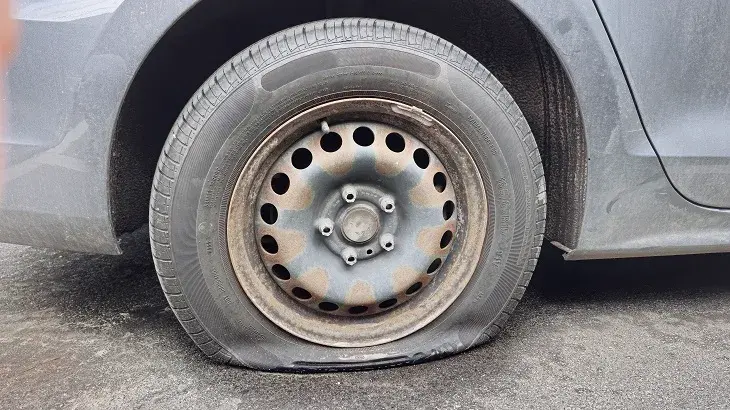17
Feb

Car insurance policies can cover tire damage, but the extent of coverage depends on the circumstances. Comprehensive and collision coverage typically covers tire damage that results from an accident or unexpected events like theft or vandalism. However, normal wear and tear on tires is not covered by insurance but may be covered by a manufacturer's warranty. Some insurers may offer additional optional coverages to protect against damage caused by potholes or other mishaps. It's important to note that the cost of repairing or replacing damaged tires must exceed the policy deductible to make a claim worthwhile. In the case of slashed tires or stolen tires, comprehensive coverage will usually cover the damage. Overall, it's essential to read and understand the specific policy and consult with an insurance representative to gain a full understanding of the coverage available.
Does insurance cover slashed tires?
When it comes to insurance coverage for slashed tires, the answer isn't straightforward. It all depends on what kind of coverage you have and your provider's specific rules in such a situation. Liability insurance coverage only covers damage or injuries resulting from an accident that you're at fault for, so it won't pay for your tires if they're slashed due to vandalism or poorly maintained roads. On the other hand, comprehensive insurance will cover slashed tires, but it's an optional policy and comes with a deductible that you must pay before your insurance kicks in to cover the cost of replacement. Insurers will only pay for the depreciated value of the tires, which means if your insurance covers new tires, they'll have to cost less than what you paid for your damaged tires. It's important to consider whether filing a claim is worth it, as it may not make sense if the cost of replacement is several hundred dollars less than your deductible. Besides, comprehensive insurance also pays for damage due to animal collisions, flooding, fire, hail, and theft.
Are tires covered by insurance in an accident?
Car insurance coverage can be complex, and tire damage is no exception. While some types of tire damage may be covered by insurance, others may not. For instance, comprehensive coverage typically provides coverage for tire damage resulting from theft, vandalism, or a collision with an object other than a vehicle. Collision coverage, on the other hand, may cover tire damage resulting from a collision with another vehicle or a stationary object such as a pothole. However, normal wear and tear or a flat tire resulting from a road hazard are generally not covered. Moreover, even if your policy covers tire damage, it may not be worth filing a claim if the cost of repair or replacement is less than your deductible. Ultimately, it's essential to review your policy carefully and weigh your options before submitting a claim for tire damage.
Does insurance cover flat tires?
According to factual data, flat tire repair or replacement is typically not covered by car insurance unless it is a result of an accident. However, some insurance companies offer optional coverage, such as roadside assistance, that can cover the cost of changing a flat tire. Additionally, comprehensive coverage can cover tire damage from theft or vandalism, while collision coverage may cover damage from hitting a pothole. It is important to note that regular maintenance, including tire rotation and replacement due to wear and tear, is not covered by car insurance. It is also important to weigh the cost of filing a claim for tire damage against the deductible, as well as the potential increase in insurance rates. Overall, while car insurance can offer some coverage for flat tire damage, it is important to consider additional options such as roadside assistance to ensure adequate protection.
Car insurance for tire damage
Car insurance coverage for tire damage is dependent on the type of insurance policy that a vehicle owner has. Comprehensive and collision insurance coverage typically covers tire damage resulting from accidents, theft, vandalism, or unexpected occurrences. However, normal wear and tear on tires is not covered by car insurance policies. If an individual has custom wheels or rims on their vehicle, it is important to consider adding custom parts and equipment coverage to their policy to cover the cost of repairing or replacing them in the event of a covered accident. Most car insurance policies also do not provide tire warranties or tire protection plans for normal wear and tear, but additional coverage options can be explored through tire dealers. Filing a claim for tire damage with a car insurance provider will be subject to deductibles and may impact insurance rates in some cases. It is important to carefully review the terms and conditions of any insurance policy to understand the range of coverage provided for tire damage.
Call on (888) 666-1005 to get a free car insurance quote now!




